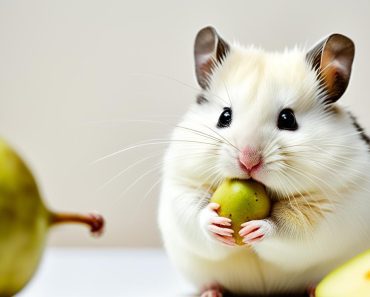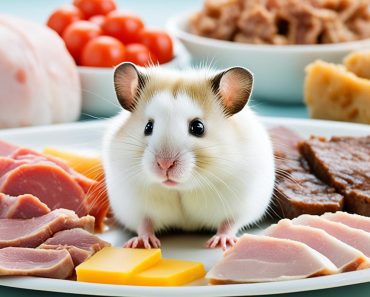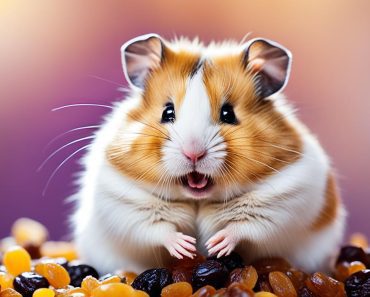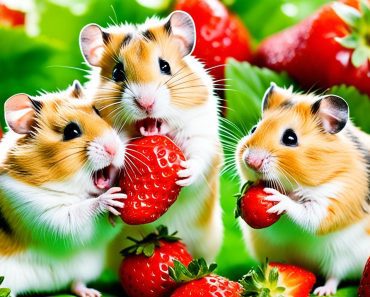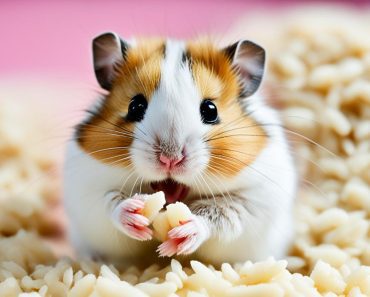When it comes to the diet of our furry little friends, hamsters require a well-balanced selection of foods to ensure their health and happiness. This includes grains, seeds, fresh fruits, and vegetables. However, not all foods are safe for hamsters to consume. One popular question among hamster owners is: can hamsters eat tomatoes?
While tomatoes are generally not considered poisonous for hamsters, certain precautions should be taken before incorporating them into their diet. It’s essential to strike a balance between providing variety and ensuring the safety of our little companions.
The acidity of tomatoes can upset a hamster’s stomach, leading to diarrhea and potentially dangerous dehydration. Therefore, it’s important to introduce tomatoes in small quantities and monitor your hamster for any adverse effects. It’s also crucial to avoid feeding them green tomatoes, tomato leaves, and large amounts of tomatoes.
To safely feed tomatoes as an occasional treat, give your hamster only half a teaspoon’s worth and observe their response. It’s important to note that tomatoes do not provide any significant unique health benefits to hamsters, so their consumption should be limited.
Can Hamsters Eat Tomatoes? Yes, they generally can, but in moderation.
- While tomatoes are generally safe for hamsters, precautions must be taken due to their acidity.
- Only feed ripe, red tomatoes to your hamster in small quantities.
- Avoid feeding your hamster green tomatoes, tomato leaves, and large amounts of tomatoes.
- Tomatoes should be considered an occasional treat rather than a staple food in a hamster’s diet.
- Monitor your hamster for any adverse effects when introducing new foods.
Hamster Diet: What to Feed Your Furry Friend
The key to a healthy hamster diet lies in providing a balanced and nutritious meal plan. While high-quality hamster food and Timothy hay form the foundation of their diet, it’s essential to incorporate a variety of foods to meet their dietary needs.
When it comes to choosing hamster food, opt for complete pellet mixes from reputable brands. Avoid muesli-style mixes as they allow hamsters to selectively eat certain ingredients, leading to an imbalanced diet. Pellets provide a balanced blend of grains, seeds, and essential nutrients to support your hamster’s overall health.
In addition to pellet mixes, hamsters can enjoy small amounts of fresh fruits and vegetables as well as protein sources like mealworms and boiled eggs. These treats should be given in moderation to avoid overfeeding and potential health issues such as obesity and dental problems.
To introduce fresh fruits and vegetables, focus on offering seedless options such as apples, blueberries, bananas, strawberries, pears, peaches, and melon. These fruits provide essential vitamins and minerals for your hamster’s well-being. Including small portions of sweet peppers, cucumbers, broccoli, spinach, and cabbage adds variety to their diet while providing additional nutrients.
When feeding fresh produce, always remember to wash it thoroughly to remove any pesticides or dirt. It’s best to introduce one new food at a time and observe your hamster for any adverse reactions. The recommended serving size for fruits and vegetables should not exceed a teaspoon per day.
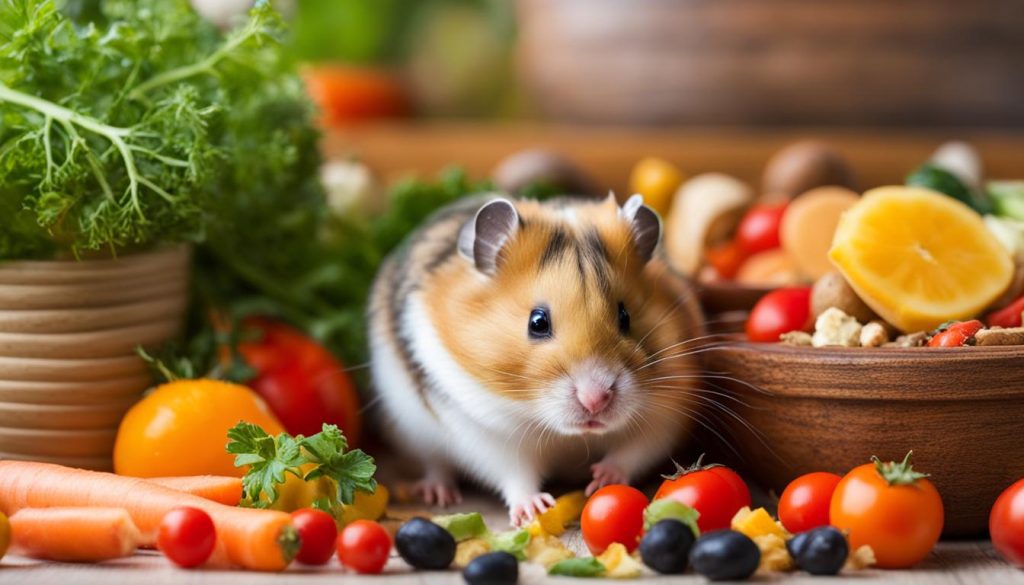
Can Hamsters Eat Tomatoes: Risks and Precautions
While tomatoes are not inherently toxic to hamsters, it’s essential to be aware of the risks and take necessary precautions when feeding them this fruit. Tomatoes contain acid that can potentially upset a hamster’s stomach and lead to diarrhea, which can further result in dehydration. Dehydration is a common problem among hamsters and can be fatal if not addressed promptly. Signs of dehydration include decreased appetite, lethargy, weakness, and sunken eyes.
To ensure the safe consumption of tomatoes, it is recommended to offer only a very small amount of ripe, red tomato to your hamster. It is crucial to avoid feeding green tomatoes and tomato leaves, as they can be harmful to your pet. Additionally, feeding tomatoes should be considered a rare treat rather than a staple food in your hamster’s diet. If you notice any reluctance or adverse reactions to tomatoes, it is best to omit them from your hamster’s diet altogether.
When incorporating tomatoes into your hamster’s diet, it’s important to practice moderation and observe their overall well-being. Monitor your hamster closely for any symptoms of tomato-induced diarrhea or dehydration, and consult a veterinarian if you have any concerns or questions.
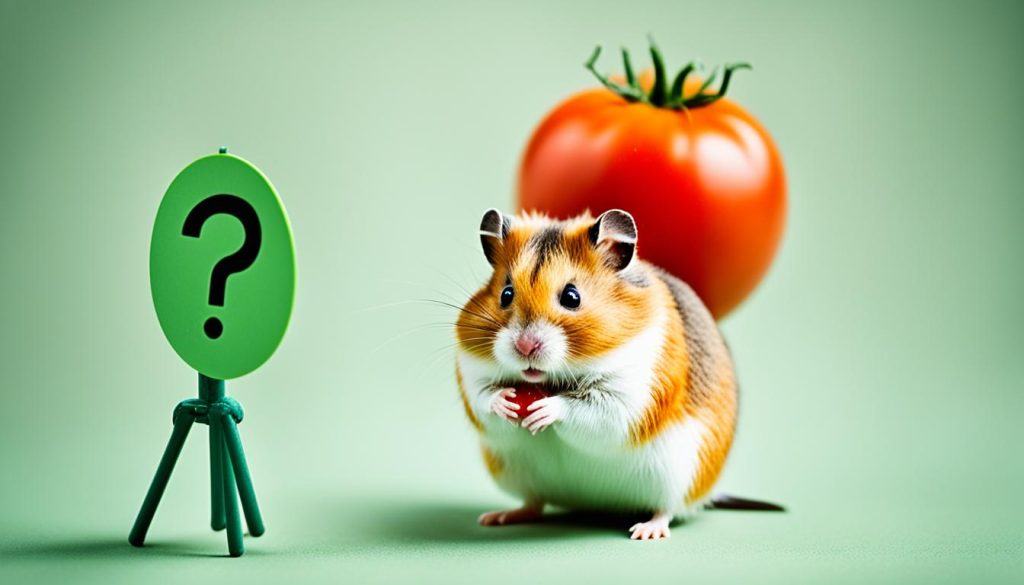
Safe and Unsafe Foods for Hamsters: A Comprehensive Guide
When it comes to your hamster’s diet, it’s crucial to be aware of the safe and unsafe foods to ensure their health and well-being. Providing a balanced and nutritious diet is essential to keep your furry friend happy and healthy. Here is a comprehensive guide to the safe and unsafe foods for hamsters:
Safe Foods for Hamsters
- Seedless apples
- Blueberries
- Bananas
- Strawberries
- Pears
- Peaches
- Melon
- Sweet peppers
- Cucumbers
- Broccoli
- Leafy greens (such as spinach and cabbage)
- Lentils
- Basil
- Parsley
- And more!
These foods are not only safe for hamsters but also provide them with essential nutrients. Remember to introduce new foods gradually and in small portions to avoid digestive upsets.
Foods to Avoid
- Garlic
- Onions
- Leeks
- Scallions
- Raw potatoes
- Raw beans
- Grape seeds
- Apple seeds
- Pickles
- Citrus fruits
- Rhubarb
- Chocolate
- Sugary foods
- Salty foods
- And more!
These foods can be harmful to hamsters and may cause digestive issues, toxicity, or other health problems. It’s crucial to avoid feeding these foods to your hamster.
Caution with Wild Plants
While it may be tempting to offer your hamster wild plants as part of their diet, caution must be exercised. Some wild plants can be toxic to hamsters, causing adverse reactions or even poisoning. It’s always best to consult with a veterinarian or a reliable source before introducing any wild plants to your hamster’s diet.
Consult Your Veterinarian
Every hamster is unique, and their dietary needs may vary. It’s always a good idea to consult with a veterinarian who specializes in small animals for specific dietary recommendations tailored to your hamster’s needs. They can provide you with valuable guidance and ensure that your hamster’s diet is well-balanced and suitable for their overall health and well-being.
By being mindful of the safe and unsafe foods for hamsters, you can ensure that your furry friend enjoys a healthy and fulfilling diet. Remember to provide a variety of foods in moderation and always prioritize their well-being above all.
Conclusion
Hamsters can enjoy the occasional treat of ripe, red tomatoes. However, it is vital to exercise caution and follow feeding guidelines for hamsters to ensure their safety and well-being. Green tomatoes, tomato leaves, and excessive tomato consumption can lead to digestive issues and dehydration in these furry pets.
A balanced hamster diet should primarily consist of high-quality hamster food and Timothy hay, which provide essential nutrients. In addition to the staple diet, offering small portions of fruits and vegetables as treats can provide variety and enrichment. Remember to provide these treats in moderation to prevent obesity and other health problems.
As with any new food, it is crucial to monitor your hamster for any adverse reactions when introducing tomatoes or other foods. If you notice any signs of discomfort or digestive issues, it is best to discontinue feeding tomatoes and consult with a veterinarian for personalized dietary recommendations.
Overall, keeping your hamster’s nutrition in mind and following appropriate feeding guidelines will help ensure their health and happiness. By providing a balanced diet and monitoring their food intake, you can contribute to their overall well-being and longevity.

